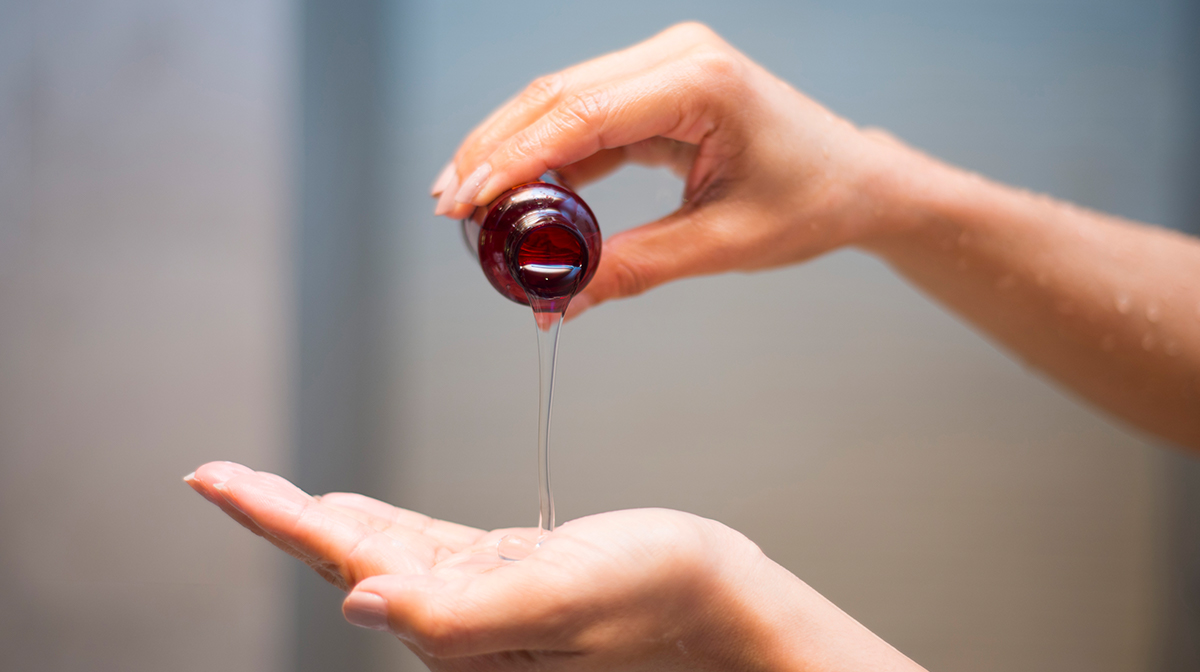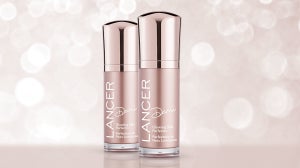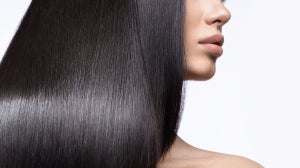
In the world of vitamin-based skincare, there’s no better and more studied ingredient than vitamin A. With a long-standing track record of alleviating everything from pimples to sun damage and even softening the appearance of fine lines and wrinkles and more, vitamin A-derived skincare products, which show up on beauty shelves and in skincare routines as retinol and retinoids (the prescription-strength version) remain a staple for good reason. For as much good as vitamin A does for the skin, the ins and outs of fully understanding how it works and the rules to follow when using it are long-winded. So, to make it easier for you, we’ve assembled a deep dive into the ingredients for everything you need to know because there’s a lot to unpack.
Table of Contents:
- Understanding Vitamin A
- The Science Behind the Transformation
- How Vitamin A Benefits Different Skin Concerns
- Choosing the Right Vitamin A Product
- How to Incorporate Vitamin A into Your Skincare Routine
- Potential Side Effects and Precautions
- The Biggest Myths and Facts About Vitamin A
- Common FAQs About Vitamin A Skincare
- The Bottom Line
Understanding Vitamin A
Vitamin A is favored in skin care and is often considered an anti-aging must-have thanks to its collagen-stimulating abilities that help improve the skin and its health on many levels. One of the main advantages of skin care with vitamin A is its ability to reprogram cellular function and speed up the rate at which skin cells naturally shed so that the skin retains its youthful, glowy appearance for longer. Originally, acne patients made up most of the vitamin A skincare market, but in recent years, its antiaging and skin tone and texture-improving capabilities have been well documented.
In skin care, the vitamin is classified as retinol, retinal or retinaldehyde, retinoic acid, or retinoids, the most potent variation. Although all forms of vitamin A work towards the same goal of improving the skin’s tone and texture, their conversion process and potency are different. Retinol sits on the lower end of the spectrum, retinal in the middle, and retinoids and retinoic acid on the high end. The less converting necessary (the skin is retinoid receptive, so topically applying it allows it to be readily absorbed) makes the vitamin more effective for faster results.
Beyond its skin benefits, vitamin A is essential for healthy eyes, reproduction and immunity function.
Vitamin A-packed skincare products provide the biggest bang for your buck in improving skin health, but it doesn’t hurt to include them in your diet. Natural sources of vitamin A include animal by-products like dairy, lean protein, red meat, and fruits and vegetables.
Related Article: Retinol vs Retinoid: What’s the Difference?
The Science Behind the Transformation
Skincare with vitamin A works on a cellular level to transform the skin, which is why the results are so dramatic. No matter which type of vitamin A skincare product is used, the way they work is the same. Vitamin A skincare products like retinol attach to specific receptors in the skin and then communicate with the skin cells how to react for more normalized skin cell function.
Vitamin A benefits the skin by promoting and increasing the turnover of skin cells. When vitamin A is applied to the skin, it signals it to create new skin cell growth and encourages the new cells to function as they did when the skin was younger. Speeding up the rate at which the skin cells naturally slough off allows for vitamin A to impact the skin and reduce the incidence of breakouts powerfully, fine lines and wrinkles since there are fewer dead skin cells within the pore (a cause of acne) and less on the surface, which can cause the skin to look dull, pigmented, lackluster and aged. From there, the skin cells begin to replicate faster so that when they divide, new collagen and elastin give the skin a soft, plump, glowy appearance. Over time, the new bundles of collagen help to thicken the skin and improve the look of wrinkles and lines.
Regularly using skincare products with vitamin A will also have a faster and more effective exfoliating effect on the skin, which improves its tone and texture for less visible signs of sun damage and hyperpigmentation. Fewer dead skin cells on the surface means the skin looks and feels softer and smoother.
How Vitamin A Benefits Different Skin Concerns
When it comes to the benefits that vitamin A skincare products deliver, they run the gamut to address common concerns like acne, fine lines, wrinkles, hyperpigmentation, and age-related changes, making this mighty vitamin a one-stop shop for all your skin care needs. By speeding up the rate at which skin cells shed from the surface, vitamin A products like retinols and retinoids help to smooth fine lines and wrinkles for more youthful-looking skin. The vitamin’s exfoliating effect also positively impacts the pores and prevents them from clogging with dead skin. The skin appears smoother and has less discoloration, which can live in the outermost layer of skin cells.
Many people question if vitamin A helps with acne, which it does. Vitamin A-derived retinol and retinoids are some of the most studied and longest-used acne treatments, particularly for improving breakouts associated with more mild acne lesions. Using vitamin A to treat acne helps improve the condition by regulating oil production, speeding up the skin’s natural rate of exfoliation and encouraging new skin cells to grow, which can all reduce the incidence of breakouts and the post-acne effects of post-inflammatory hyperpigmentation on the skin. Vitamin A skin care products also help limit free radical damage since vitamin A thwarts oxidative stress and its impact on the skin by controlling the damage and acting as a defense mechanism to assist in how the body reacts to the stress.
On the other hand, skincare with vitamin A can also improve signs of aging by stimulating new collagen and promoting the exfoliation of old, dead skin cells that can mar the complexion. With fresh, new collagen bundles created within the skin where elastin and blood vessels are located, it increases blood flow to the skin’s surface, giving way to a plumper, firmer appearance.
Some prescription-strength retinoids can even be used to control certain skin conditions, like psoriasis, for example, by slowing down the rate at which the skin cells grow to improve discoloration and reduce thickness and skin scaling.
Related Article: Everything You Need to Know About Treating Inflammatory Acne
Choosing the Right Vitamin A Product
Choosing the right vitamin A product for healthy skin can be overwhelming since many options exist. You’ll want to select products that cater to your skin type and current skin concerns to reap the benefits. If no specific skin concern bothers you, select a vitamin A product that tackles anti-aging in a general sense. Some skin types prefer creams, while others like retinol-containing serums or oils, which may lend a bit of a hydrating benefit.
Starting with vitamin A skincare products can cause the skin to become irritated and dry, especially if it is on the sensitive side. To limit those effects, it’s always best to incorporate vitamin A at low concentrations twice weekly until the skin adjusts. Then, once the skin can tolerate the product, slowly increase the strength and frequency, which helps limit initial irritations. Always veer on the side of caution and patch test a small area of skin to ensure no side effects or allergic reactions occur, and of course, consult your dermatologist. Skin fully acclimated to the ingredient can, at some point, use vitamin A nightly.
How to Incorporate Vitamin A into Your Skincare Routine
Once you’ve decided to include vitamin A into your skincare routine, you’ll need to verse yourself on the steps to follow to make the most of it.
For starters, always use vitamin A skincare products at night since vitamin A can make the skin more sensitive to the sun. Sunscreen should always be worn during the day when using skincare products that contain vitamin A.
A well-rounded vitamin A skincare regimen doesn’t need to be fancy or encompass several steps. Often, simple is better. To make the most of vitamin A for healthy skin, always apply it to clean dry skin. After applying the retinol or retinoid, layer on a gentle moisturizer to help reinstate hydration to the skin, which can sometimes be depleted when using vitamin A skincare products (even though many products contain calming and hydrating ingredients to help make the skin more tolerable of vitamin A). Only a tiny, pea-sized amount is needed to impact the skin—using more won’t guarantee better or faster results and can lead to excess dryness and sensitivities. Then, you can continue with the remainder of your nighttime skincare routine.
On nights when using vitamin A, avoid applying exfoliating acids to the skin, such as alpha hydroxy acids like glycolic acid and beta hydroxy acids like salicylic, increasing the likelihood of irritations. It’s also best not to use a physical, chemical or manual exfoliator on the skin on retinol nights. Of course, you can adjust the routine as needed to fit your skin’s needs. Most vitamin A newbies find success by incorporating the ingredient every third night before increasing it to every second night and then every other day, allowing the skin to get accustomed to it.
Potential Side Effects and Precautions
Like other skincare actives, vitamin A has potential side effects that are important to note. While not every person experiences these risks, it’s better to be informed of what can occur so you can mitigate them as best as possible.
Retinol and retinoids are synonymous with causing redness, dryness, flakiness, irritation, sensitivities, itching, and skin peeling. However, the weaker the formulation, the less likely it is for side effects to occur, which is why starting off with the lowest percentage available is always recommended. Should any side effects occur, stop using the product for a few days or longer and allow the skin to heal. Then, once the skin resolves and feels like it is returning to normal, it’s generally safe to resume using the ingredient. Usually, wearing sunscreen daily and moisturizer morning and night helps keep the skin barrier intact so that there’s less discomfort and adverse effects with vitamin A skincare.
The Biggest Myths and Facts About Vitamin A
There’s a lot of fact and fiction surrounding vitamin A. Here are the most common misconceptions surrounding the ingredient.
Vitamin A is only beneficial for anti-aging purposes.False. Vitamin A can pack a powerful punch in the anti-aging department, but it also works wonders for improving discoloration and acne and controlling sebum production. It can also help dull skin by speeding up the rate of exfoliation.Retinols are harsh and will ruin sensitive skin.False. Retinol can be drying and irritating, but as long as you use one correctly and add a good moisturizer and sunscreen, most are safe to use on sensitive skin.
A vitamin A-rich diet won’t give the same effects as vitamin A skincare products.True. Eating vitamin A-rich foods is beneficial but consuming them will take far longer to show their effects on the skin. If you want clear, smooth, more youthful-looking skin, it’s best to use vitamin A skincare products.
You should never apply retinol and go out in the sun.True. Vitamin A and sun rays are not a good mix. Even though vitamin A is naturally found in the skin, applying it to the sun and exposing it to sunlight can irritate, desensitize and inflame the skin and increase the risk of sunburns.
I’m only 30 and too young to use vitamin A.False. Once you hit your mid-20s, the skin's collagen production rate begins to slow annually. Even if your skin is healthy and in excellent condition, the skin and body can always benefit from vitamin A, whether applied topically or consumed through diet. To maintain the health and integrity of already healthy skin, using a low-dose retinol serum will help keep it looking healthy and functioning normally.
Common FAQs About Vitamin A Skincare
Want to know even more about vitamin A in skincare? These are the most frequently asked questions.
Can vitamin A be used during pregnancy?No. It’s best to avoid using topical products with vitamin A, specifically retinoids and retinoic acid, which can cause congenital disabilities while pregnant, to prevent any potential crossover from the skin to the baby.
Should I combine vitamin A with other skincare ingredients?It’s okay to use vitamin A with other skincare ingredients, like ceramides, hyaluronic acid and SPF, but don’t simultaneously apply vitamin A products to the skin as other exfoliators or acid-based products, which can cause irritations.
How long will it take to see results?You’ll need to be consistent and patient when seeing the results of vitamin A on the skin. On average, it takes about three to six months to see the first signs of skin improvement and up to one year before the full effects are noticed.
Should I stop using vitamin A if my skin gets dry and irritated?Yes, but not forever. Take a break for a few days and focus on rehydrating the skin. Any dryness, irritation or breakouts are typical with vitamin A, especially when starting to use it, and are all part of the skin adjusting to it.
Is it safe to use retinol around my eyes?While the skin under and around the eyes is sensitive and inherently thin, it’s also where many of the first signs of aging occur. So yes, it’s safe to use retinol around the eyes—just be prepared for a bit of redness and dryness.
Is vitamin A the same as retinol?Retinol is derived from vitamin A in synthetic form. It is also the weakest form of vitamin A used in skincare.
The Bottom Line
Vitamin A skincare products, like retinol and retinoid, remain popular in a sea of new and innovative skincare ingredients. These longstanding vitamin A-derived elements have a track record for boasting positive, transformative effects on the skin to keep it firm, youthful, plump and healthy. While it’s always best to take a holistic approach and incorporate vitamin A into your skin routine from the inside out and the outside in, along with coupling it with other healthy skin and lifestyle habits, vitamin A plays a profound role in the skin to keep it looking its best and functioning optimally.
Shop our curated selection of vitamin A skincare products available on Skinstore.








